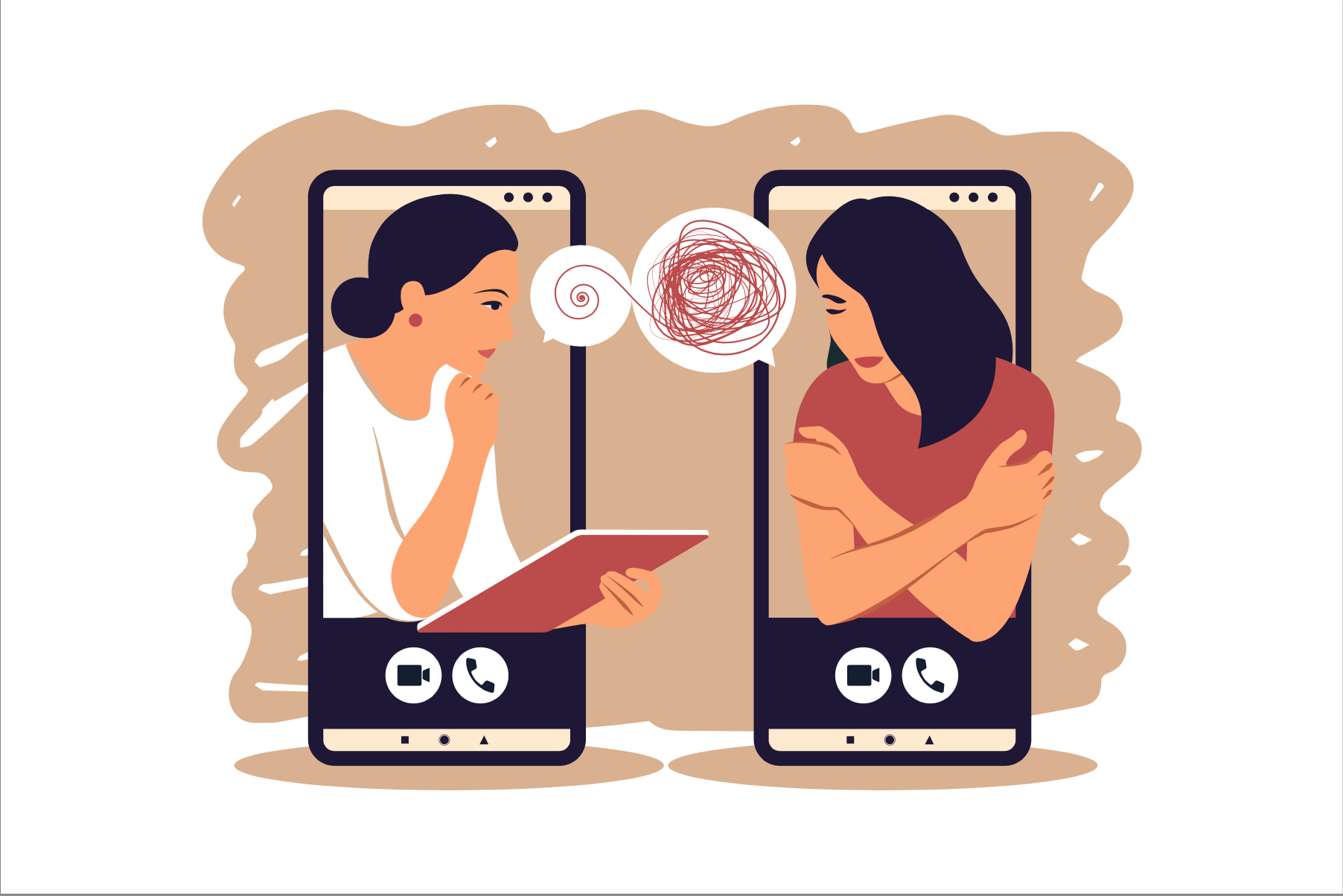In today's fast-paced world, mental health has become a critical concern for millions of people around the globe. The concept of a "therapist in your pocket" has emerged as a revolutionary solution, offering accessible and convenient mental health support through mobile apps and digital platforms. This innovative approach to mental health care is transforming the way individuals manage their emotional well-being.
The demand for mental health services has skyrocketed in recent years, driven by increasing awareness of mental health issues and the challenges posed by modern life. With the rise of technology, the idea of having a therapist available at your fingertips has become a reality, providing users with on-demand support whenever they need it.
This article will explore the concept of "therapist in your pocket," its benefits, challenges, and the future of digital mental health solutions. Whether you're a mental health professional, a tech enthusiast, or someone seeking support, this guide will provide you with comprehensive insights into this transformative field.
Read also:Infinity Eye Care Katy Your Ultimate Guide To Exceptional Vision Health
Table of Contents
- Introduction to Therapist in Your Pocket
- Key Benefits of Having a Therapist in Your Pocket
- Challenges Faced by Digital Mental Health Platforms
- Top Therapist in Your Pocket Apps
- Cost and Accessibility of Digital Therapy
- Privacy and Security in Digital Mental Health
- The Role of Technology in Mental Health Care
- Research and Studies on Digital Therapy
- The Future of Therapist in Your Pocket
- Conclusion and Call to Action
Introduction to Therapist in Your Pocket
The term "therapist in your pocket" refers to mobile applications and digital platforms designed to provide mental health support and therapy services through smartphones and other digital devices. These platforms offer a wide range of services, including chat-based counseling, video sessions, and self-help tools, all accessible from the palm of your hand.
According to a report by the World Health Organization (WHO), nearly one billion people worldwide are affected by mental health disorders. Traditional therapy, while effective, often comes with barriers such as cost, availability, and stigma. Digital mental health solutions aim to bridge these gaps, making therapy more accessible and convenient for everyone.
Some of the most popular therapist in your pocket apps include BetterHelp, Talkspace, and Woebot. These platforms leverage advanced technology, such as artificial intelligence and machine learning, to deliver personalized and effective mental health support.
Key Benefits of Having a Therapist in Your Pocket
Convenience and Accessibility
One of the primary advantages of therapist in your pocket apps is their convenience. Users can access therapy sessions anytime and anywhere, eliminating the need for in-person visits. This is particularly beneficial for individuals living in remote areas or those with busy schedules.
Cost-Effective Solutions
Traditional therapy can be expensive, often requiring insurance coverage or out-of-pocket payments. Digital therapy platforms offer more affordable options, with subscription-based models and flexible pricing plans. This makes mental health care more accessible to a broader audience.
Stigma Reduction
Many people hesitate to seek mental health support due to the stigma associated with therapy. Therapist in your pocket apps provide a discreet and private way to access mental health services, helping to reduce the fear and shame that often accompany seeking help.
Read also:Saucony X Jae Tips A Comprehensive Guide To Elevate Your Sneaker Game
Challenges Faced by Digital Mental Health Platforms
Quality Assurance
One of the biggest challenges in the digital mental health space is ensuring the quality of therapy services. Not all platforms adhere to the same standards, and users must be cautious when selecting a provider. It's essential to choose platforms that employ licensed therapists and follow evidence-based practices.
Technological Barriers
While digital therapy offers many benefits, it also comes with technological challenges. Not everyone has access to reliable internet or smartphones, which can limit the reach of these platforms. Additionally, some users may struggle with the technical aspects of using these apps, particularly older adults or those unfamiliar with technology.
Privacy Concerns
Data privacy is a significant concern for users of digital mental health platforms. It's crucial for these apps to implement robust security measures to protect sensitive information and maintain user trust. Platforms must comply with regulations such as HIPAA in the United States to ensure the confidentiality of patient data.
Top Therapist in Your Pocket Apps
BetterHelp
BetterHelp is one of the largest and most popular digital therapy platforms, offering personalized counseling services for a wide range of mental health issues. With a team of over 25,000 licensed therapists, BetterHelp provides users with access to professional support 24/7.
Talkspace
Talkspace is another leading platform in the therapist in your pocket space, known for its user-friendly interface and comprehensive therapy options. The app offers text, audio, and video sessions, allowing users to choose the format that best suits their needs.
Woebot
Woebot is a unique app that uses AI-powered chatbots to deliver cognitive-behavioral therapy (CBT) techniques. While not a substitute for human therapists, Woebot provides users with instant support and tools to manage their mental health on a daily basis.
Cost and Accessibility of Digital Therapy
The cost of digital therapy varies depending on the platform and the type of services offered. Most therapist in your pocket apps operate on a subscription-based model, with prices ranging from $40 to $100 per week. Some platforms also offer sliding scale fees based on income, making therapy more affordable for low-income individuals.
In addition to cost, accessibility is another critical factor to consider. While digital therapy has the potential to reach millions of people worldwide, it's essential to address the digital divide and ensure that these services are available to everyone, regardless of their socio-economic background.
Privacy and Security in Digital Mental Health
Data privacy and security are paramount in the digital mental health space. Platforms must implement strong encryption protocols and comply with relevant regulations to protect user information. Users should also take steps to safeguard their data, such as using strong passwords and enabling two-factor authentication.
Some of the key privacy considerations for therapist in your pocket apps include:
- Ensuring secure communication channels
- Storing data in compliance with legal standards
- Providing transparency about data collection and usage
The Role of Technology in Mental Health Care
Technology plays a crucial role in the development and delivery of digital mental health solutions. Advances in artificial intelligence, machine learning, and natural language processing have enabled the creation of sophisticated tools that enhance the effectiveness of therapy.
For example, AI-powered chatbots can provide real-time support and feedback, while machine learning algorithms can analyze user data to identify patterns and predict potential mental health issues. These technologies have the potential to revolutionize the field of mental health care, making it more personalized and effective.
Research and Studies on Digital Therapy
Several studies have demonstrated the effectiveness of digital therapy platforms in improving mental health outcomes. A 2021 meta-analysis published in the Journal of Medical Internet Research found that online cognitive-behavioral therapy (CBT) was as effective as traditional face-to-face therapy for treating anxiety and depression.
Another study conducted by researchers at Stanford University showed that Woebot, the AI-powered chatbot, significantly reduced symptoms of depression and anxiety in college students over a two-week period. These findings highlight the potential of digital therapy as a viable alternative to traditional mental health care.
The Future of Therapist in Your Pocket
The future of therapist in your pocket apps looks promising, with ongoing advancements in technology and increasing demand for mental health services. As more people embrace digital solutions for their mental health needs, these platforms are likely to become even more sophisticated and effective.
Some of the trends to watch in the digital mental health space include:
- Integration of virtual reality (VR) and augmented reality (AR) for immersive therapy experiences
- Development of personalized treatment plans based on user data and preferences
- Expansion of services to include group therapy and peer support
Conclusion and Call to Action
In conclusion, the concept of a therapist in your pocket represents a significant advancement in the field of mental health care. By offering convenient, affordable, and discreet access to therapy services, these digital platforms are helping millions of people around the world improve their mental well-being.
We invite you to explore the world of digital therapy and discover how it can benefit you or your loved ones. Share this article with others who may find it helpful, and don't hesitate to leave a comment or question below. Together, we can work towards a future where mental health care is accessible to all.


